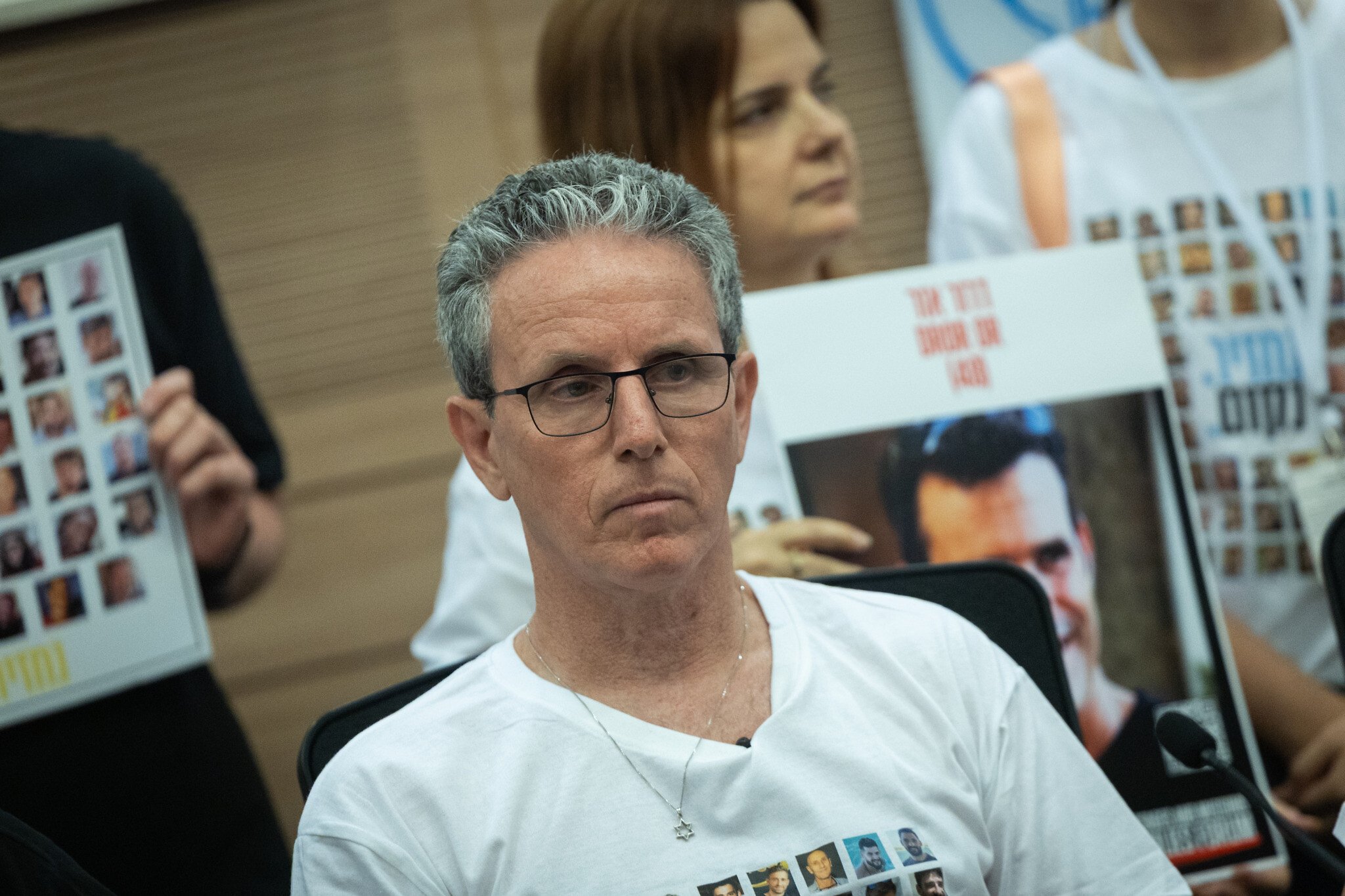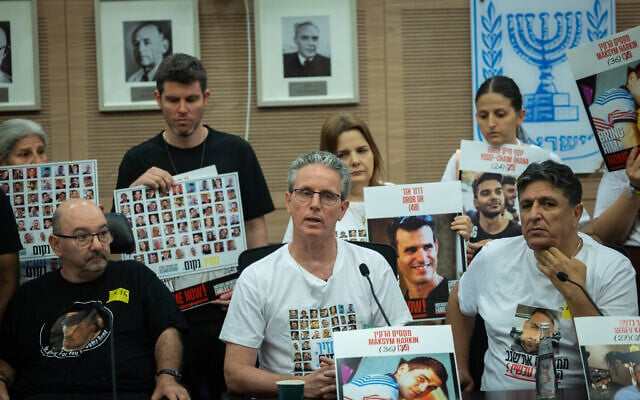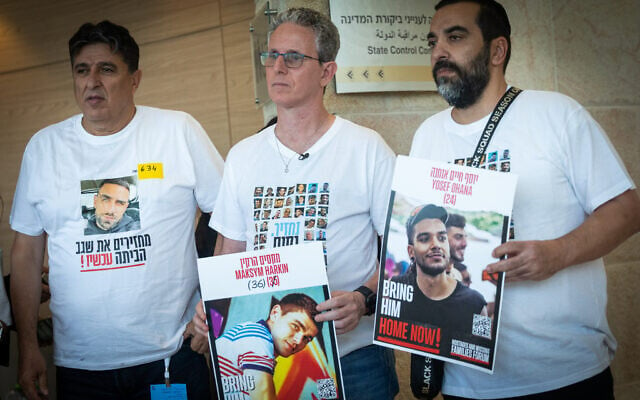



As he underscored the need to recover the remaining 50 hostages, of whom only 20 are believed to still be alive, released captive Ohad Ben Ami told lawmakers in the Knesset on Tuesday that his captors had forced him and other hostages to choose which of their number should be sentenced to death.
Ben Ami, who was abducted from his home in Kibbutz Be’eri during the Hamas onslaught of October 7, 2023, and was released from captivity in February 2025, recounted his experience during a Knesset Foreign Affairs and Defense Committee session.
He told the committee that about a month before his release, he was rounded up along with five of his fellow hostages and told by a Hamas operative that three of them would be sentenced to death, and that it was up to them to decide who it would be.
“A commander, probably a senior one, came to us and cocked his gun, and said: ‘Choose three people to die and three people who I will shoot in the kneecap,'” Ben Ami said. “They made us decide which three should take a bullet to the head, and which three a bullet to the knee.”
“We had to debate this for an entire hour, all while they filmed us,” he recalled. “They let each of us speak and explain why we deserved to live, why we deserved to die, or why we deserved to be shot in the knee.”
He said that once the hour was up, and nobody had volunteered themselves or their fellow captives to be selected for death or life, their captors simply picked which three would be sentenced to death at random.
“And then they told us, before we shoot you, you have the opportunity to perhaps be spared.”
In an attempt to spare themselves from the death sentence, the three hostages were forced to speak badly about the Israeli government, among other subjects, Ben Ami said. After they were finished speaking, he said, the Hamas official made a show of having “pardoned” them and sent the six men away.
“You sit there and think to yourself, ‘What just happened here?'” Ben Ami told the committee, explaining that the hostages constantly exist in “a state of extreme fear.”
“Understand that this is what it’s like, this is how we lived our lives every day,” he stressed. “On top of everything else, unexpected things happen, and it’s insane to think about it.”
Ben Ami also drew the committee’s attention to the more mundane dangers to the lives of the hostages and described the “difficult conditions” they are forced to endure.
“Abuse, fear of dying in an IDF strike, fear that their captors will take revenge because their friends or family have been killed,” he summarized. “There is no food when the crossings are closed; the situation is extremely difficult.”
“You can tell me that we defeated Iran and that we defeated Lebanon, but if we don’t bring them back, then we didn’t defeat anyone. We’ll have lost. If we bring them back — then we’ll have won.”
There’s no doubt that Israel is a “regional power,” Ben Ami acknowledged, referring to the recent 12-day war with Iran. “But even with all these victories, there’s no real victory until the hostages are returned.”
“Every citizen will be proud that our country returned the hostages and proved the values we were raised on,” he said.
Ben Ami told the Knesset committee that he and all the other hostages had built their lives in the communities close to the Gaza border “with the understanding that if something happened to us, you’d be there for us.”
“I, and the five who were with me, and the 50 who are still there, did everything we could for the country, and it’s time for the country to give back — nothing big, just give them their lives.”
“You don’t understand how much love there is in this nation,” he said. “I receive love from everyone. But the moment that we fail to do the right thing, we will become a broken country, and who will agree to live here then?”
Families of hostages and victims of the Hamas attack have kept up a constant presence at the Knesset, attending committee meetings where they have frequently clashed with lawmakers over their sharp criticism of the government for security failures that led to October 7 attack, and for failure to reach a deal to bring back all of the hostages.
Mediated talks between Israel and Hamas have so far failed to make progress in reaching an agreement, though recent days have seen growing signals that Prime Minister Benjamin Netanyahu may be aiming for a deal that would end the war.
Terror groups in the Gaza Strip are holding 50 hostages, including 49 of the 251 abducted by Hamas-led terrorists on October 7, 2023.
They include the bodies of at least 28 confirmed dead by the IDF. Twenty are believed to be alive, and there are grave concerns for the well-being of two others, Israeli officials have said. Hamas is also holding the body of an IDF soldier killed in Gaza in 2014.


